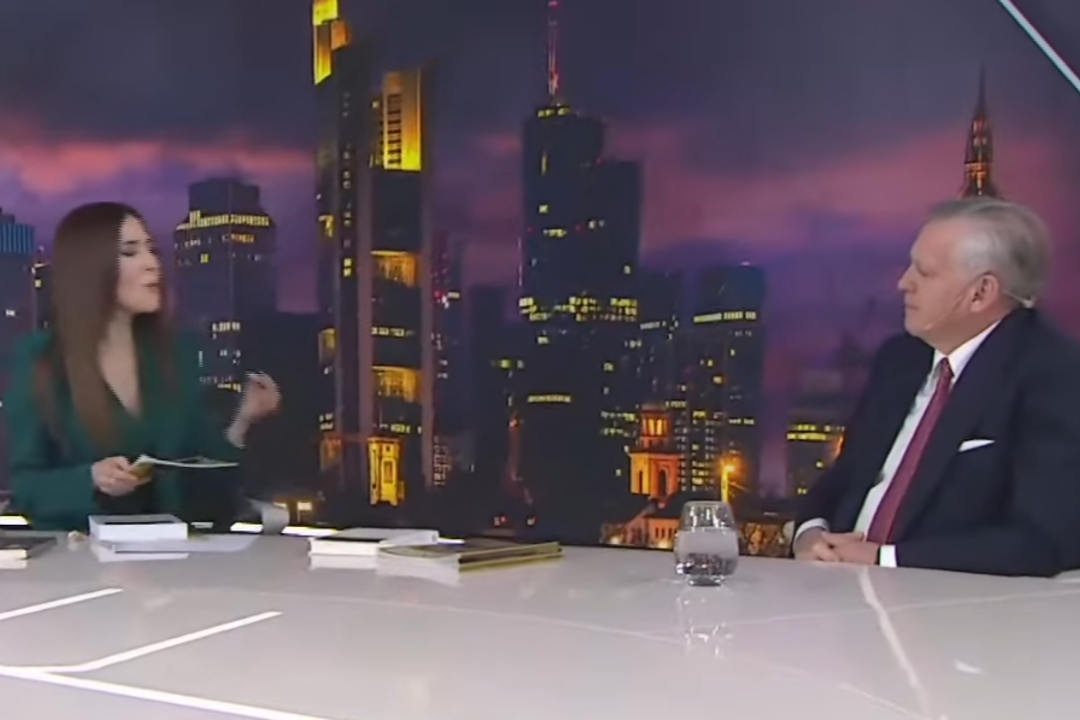
The Revolution of Ideas: Jesús Huerta de Soto, Milei, and Anarcho-Capitalism in Argentina
Introduction
In April, Spanish economist and professor Jesús Huerta de Soto—one of the leading voices in anarcho-capitalist thought—visited Argentina to receive an honorary award and meet with President Javier Milei. During his visit, he gave a rare and wide-ranging interview to journalist Cristina Pérez. The conversation, available in full on video, serves as a masterclass in economics, history, political philosophy, and the ongoing cultural battle in Latin America.
This article summarizes and organizes the core ideas discussed in the interview. It is an invitation to explore concepts like liberty, state, money, and revolution through a lens rarely given mainstream attention.
1. Milei and the Revolution of Liberty
Huerta de Soto argues that President Javier Milei is spearheading a true revolution of liberty. What matters most, according to him, is not the government's specific policies, but the emergence of a discourse rooted in the Austrian School of Economics—delivered with an intellectual coherence rarely seen in politics.
"I never thought I’d witness something like this in my lifetime," he says, emphasizing that Milei has brought the debate on free markets and minimal government to global platforms like Davos and the UN.
2. The Global Impact of Anarcho-Capitalism
While Huerta de Soto did not coin the term "anarcho-capitalism," he helped popularize it through his writings. He presents it as the natural evolution of classical liberalism—recognizing that attempting to limit state power from within is theoretically impossible.
"The state is the incarnation of evil," he declares without hesitation.
His critique of statism is radical: the state is not only unnecessary, but morally, economically, and civilizationally harmful. He believes that every service currently offered by the state could be better delivered through civil society and the free market.
3. Lessons from Germany and Rome
Huerta de Soto draws parallels between Argentina’s current challenges and two major historical examples:
- Post-war Germany, which experienced an economic miracle after Ludwig Erhard unilaterally liberalized the economy using Austrian School principles.
- The Roman Empire, which collapsed under populist policies, massive subsidies, and systematic currency debasement.
"Argentina could reclaim world leadership in less than ten years if it stays on the path of liberty," he predicts.
4. Inflation as a Hidden Tax
One of the interview’s most educational moments is Huerta de Soto’s explanation of inflation. He stresses that inflation is not merely rising prices, but an artificial expansion of the money supply—driven by deficit monetization and fractional reserve banking.
"Real money was replaced with paper created by the state and banks. Inflation is the most perverse tax, because it isn’t voted on and hits the poor the hardest."
He praises Milei for halting the first driver—state spending funded by money printing—and suggests the next step should be eliminating the banking system’s ability to create money from nothing.
5. The Cultural Battle and the Role of Youth
For Huerta de Soto, the true battleground isn’t parliament or global institutions, but the realm of ideas. He believes Milei has already succeeded by putting forth a clear ideological agenda that deeply resonates with young people.
"The bull of ideas is already in the arena," he says, using a Spanish bullfighting metaphor.
This cultural shift, he argues, is irreversible—so long as education and discourse continue to spread.
6. A Contradiction? Accepting a Medal from the State
In a surprising move, Huerta de Soto accepted an honorary medal from the Argentine state—even though he considers the state a force for evil.
"Strictly speaking, I should return it. But since it comes from the nation—as a civil society—and out of respect for the Argentine people, I accept it with gratitude."
Conclusion: A Historic Originality?
Huerta de Soto sees this moment as historically unique: a president who not only implements liberal policies but also articulates their theoretical foundations with clarity and conviction.
"This is a historical originality. I’ve never seen anything like it."
Whether or not you agree with his views, the interview with Cristina Pérez offers a rare opportunity to explore libertarian thought from one of its most rigorous proponents.
Watch the full interview here:
Interested in more analysis on political philosophy, economics, and freedom? Subscribe to our newsletter to receive future articles straight to your inbox.
